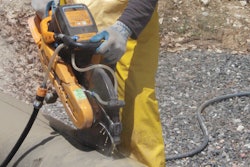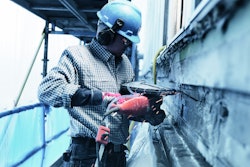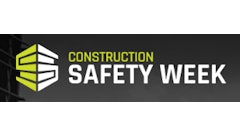
Training has always been important to construction companies but never more so than today. In order for your company to be competitive, to perform quality work, to exceed your customer’s expectations you need to train your people. Don’t expect your “college degreed” employees to have learned all that they will need to know and don’t wait until your current employees gain enough experience to do the right thing…you might be out of business well before that day arrives.
As the old saying goes, “In the end, stupid is still…stupid.” Whether it is estimators, supervisors, foremen, project managers, general laborers or front office clerks, everyone in your company needs to be better educated, trained, more skilled at what they do. You need to train!
Is On-demand Training The Next Big Thing for the Construction Industry?
As an example, during a weekend trip to Chicago I popped in to a shoe store to have a look over. As I picked up a shoe that caught my fancy, a young woman approached me about my interest. Let me share with you my dialogue over the next few minutes. (This really happened!)
“Sir, may I help you?”
“Yes, what are the widths carried for this shoe?”
The sales woman looks at me like a deer caught in the headlights.
“Uh, a 10 to 12?”
“No, I’m sorry; I meant width, not length. How wide of shoe does this model come in?”
Another look of shear…I don’t know.
“Uh, a 48, sir?” She hadn’t a clue.
“You have no idea what a width for a shoe means, do you?
“No sir, I don’t. Let me get someone else to help you.”
The young sales woman quickly grabbed a young man, about her age, who attempted to come to her rescue.
“May I help you sir?” Asked this confident-looking salesman.
“Yes, can you tell me what the widest size you carry for this shoe is?”
The same deer in the headlights look appeared on this sales person’s face.
“No sir, I can’t. But I’ll get our manager to help you.”
Another young woman, this one with a cordless head phone about her head and carrying an IPad, arrived.
“May I help you?” The manager, after looking at me, looked at her two pupils as if to say, what is going on here people?
“You’re the manager, right?” The manager nodded her head “Yes.”
“I happen to do a lot of training with companies all over the country and it’s obvious that you or your company do not. Tell you what ma’am. If you’ll allow me, I can train both of these fine young people how to sell shoes because it’s obvious they don’t have a clue as to the difference between a B, D, or E width shoe. Do you know the difference ma’am?”
She looked at both of her sales people and, shaking her head side to side slowly, could only muster a “I’m disappointed in you both.”
“Yes sir, I do know the difference between those widths and we only carry medium width shoes here.”
The manager couldn’t even tell me what widths they carried. In fact, as I was leaving, the young salesman chased me and apologized for his lack of knowledge and added, “We only worry about length of shoe here.”
Ya, right!
Now before you think I’m mean spirited, I did carry this entire conversation, with the three individuals, in a humorous manner. However, the sad thing is, these two sales people, and their manager, are an example of what can happen to any contractor if he too fails to train his workers. We gather together a lot of nice, maybe even well-intentioned employees who are simply not effective at really helping our customers — much less able to perform the needed work.
The need to train is a no-brainer for most contractors. It’s the time and how-tos that often pose the biggest challenges.
First, let’s address the time element.
I hear many contractors complain, “Humphrey, I don’t have time to train my people. We’re just too busy.” And my answer is always:
“You don’t have time NOT to train!”
Most construction companies have the time to train, they’re just not prepared to do the training. For example, have you ever calculated the number of days in your construction year that you are prevented from working? Consider all of the weather days, the “no power or access to site” days, or any other reason where you might have one or more employees unable to work. Consider the following question:
- Do I have a training program readily available?
- Do I have a plan for training during a rainy day?
For most construction companies, big and small, the answer is…NO! This reality is VERY fixable. You need to train!
Now, let’s talk about how to train more effectively.
There are a host of resources available that can be used to improve your training effort. From the “train the trainer” workshops to actual literature and CDs on learning topics, not to mention all that is available via the Internet, much of which is downloadable. Finding resources is not the problem.
Consider a few suggestions to help refine your training commitment and efforts:
- Identify three to five improvement needs of your workers.
- Research training resources that address those needs.
- Select the best “trainer” to lead each selected learning session.
- Follow-up on training with “pop quiz” and personal interviews.
Let’s expand on each of the four suggestions listed above.
Identify 3 to 5 improvement needs of your workers
What is limiting your workers’ performance? Technical knowledge? Work process knowledge? Customer satisfaction challenges? New software issues? Quality failures?
Hey, whatever is preventing getting things done right the first time is costing you money. You’ll probably be able to identify 50 or more needs, but create blocks of training needs, then group your training efforts into three to five training issues a year.
Research training resources that address those needs
You will always want to tailor your training efforts as much to the actual needs as possible. Resources for such training could come through various sources, including:
- Online training
- Books and/or books on CD
- Webinars
- Articles and white papers
- Video/DVD training
- Conferences, association-sponsored workshops
- Classes at local colleges
- Manufacture- or distributor-sponsored workshops and demonstrations
- Internal “specialists” of your company who teach your employees
- Contract with construction-focused training company
There really are a great many resources available. Look ahead when you might see a forecast that will shut your crews down for a half day or longer and line up the needed training. Some resources will require more lead time than others but have a few in the “bullpen,” ready to come in for those emergency moments. Take advantage of any scheduled crew or staff meeting by including 15 to 30 minutes of training on some needed topic.
As you grow your company, develop your own internal “institute for learning.” Such an effort will help distinguish your company from other contractors. Trust me, the “thoroughbreds” of construction want to work for the company that emphasizes continued learning and development since this often leads to advancing one’s career.
Select the best “trainer” to lead each selected learning session
The best training does not necessarily cost a lot of money, but you should select trainers who can communicate well and who have, as their foremost priority, the “students’” interests and needs. A good trainer must be willing, and able, to give away her knowledge, lessons learned and trade secrets.
If you contract with a professional trainer or “coach” to assist your efforts be sure to educate her on your company’s work culture, what training you have done in the past, what your past successes and failures have been with training, etc. The more informed the trainer is about your company, and your training objectives, the better job she will do in meeting those objectives.
Remember, just because you might have the best technical expert working for you doesn’t mean she will be just as effective when training. There’s a reason that the “Michael Jordans” of the world rarely make great trainers and coaches. Often, the best coach is the person who might not be the best at any one technique or skill but has the in-depth understanding of the skill and possesses the great communication ability to relate the needed knowledge or technique.
Follow-up on training with a “pop quiz” and personal interviews
Good training can be for naught if there is no follow-up. When employees know that there will be a test after their training they tend to listen better, take more notes and retain more information. Likewise, when employees know that their senior leader, perhaps even the owner, will be following up and personally inquiring about their training experience, the employee tends to be more proactive and engaged in the training effort.
In a future article, I will provide you with some great “train the trainer” techniques but for now rethink your commitment and plan for training. Admittedly, and understandably, training is the first thing that is often left behind. And, when those rainy days show up, we’re at a loss as to how to spend our employee’s time. Too many times we either send them home for the day or have them clean out the shop area.
You really do need to train your workers. The inexperienced workers will make greater strides more quickly in their performance efforts and the seasoned veteran will be able to recall and retrain on the basics!
Start today on a new path — a path that includes training at all levels for all employees. Begin today to move your company to a construction culture that truly views each experience as a teaching moment!




















